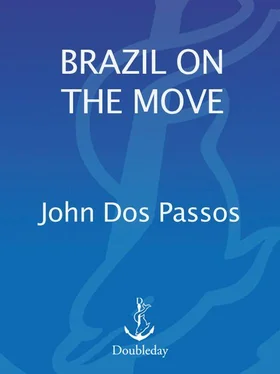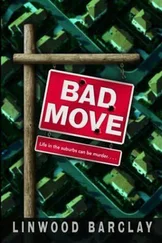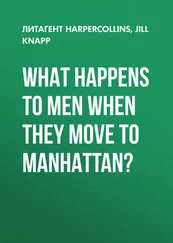Reform was in the air all the same. A brash young man whose emblem was a new broom and whose motto was a clean sweep had defeated Adhemar de Barros in São Paulo the year before. Honesty in office and efficient administration were Jânio Quadros’ warcries. His first act was to have his predecessor indicted for peculation. The same reform movement carried Carlos Lacerda to the Chamber of Deputies by a very large vote.
The Democratic Union, to which Lacerda belonged, questioned Kubitschek’s election as having been put through with the support of the illegal Communist party and by the discredited methods of the Vargas machine. There was a head-on confrontation of forces.
In such moments in Brazil the armed services tend to be the decisive factor. A large part of the Army went along with Café Filho’s Minister of War, General Teixeira Lott, in endorsing Kubitschek’s election. On the other hand there were groups of officers, particularly in the Navy and Air Force, who wanted a general housecleaning under the auspices of Brigadier Gomes. All Rio whispered of a coup d’état . The tension reached such a point that President Café Filho collapsed from a heart attack and was placed by his doctors in an oxygen tent in a hospital, incommunicado.
Congress forthwith declared the presidency vacant and installed Carlos Luz, the Speaker of the House, as constitutional President. Carlos Luz was a Social Democrat with reformist sympathies. It seemed the Godgiven moment for the reformers to take power. Luz demanded General Lott’s resignation and appointed another general in his place as Minister of War.
General Lott resigned all right, but immediately he sent troops he could trust to occupy key points in Rio. A coup to forestall a coup, he called it. Labor and some Social Democrat factions in the congress declared Luz deposed, and appointed their adherent, Nereu Ramos, who, as presiding officer of the Senate, was next in order of succession, President in his stead.
For a few hours it looked like civil war. Café Filho lay helpless in his oxygen tent. Brigadier Gomes, still the hope of the Democratic Union, started for São Paulo where he hoped to recruit adherents. Claiming he was still constitutional President, Carlos Luz gathered his supporters about him and they all trouped aboard an old American cruiser renamed the Tamandaré . The commander, a sympathizer, received him with full honors. Carlos Lacerda, still only deputy elect, went along.
The cruise of the Tamandaré proved a fizzle. Orders were issued to proceed at full steam to Santos, where the harbor forts were in the hands of officers favorable to Carlos Luz, but there was very little coal in the bunkers and part of the crew was on shore leave. During the hours that went by before the cruiser could put to sea General Lott had Gomes intercepted and sent emissaries to win over the garrisons of São Paulo and Santos.
Lott’s orders were for the Tamandaré to stay in port. When the cruiser, with barely enough steam for half speed, did manage to weigh anchor and to head out across the bar for the open sea, the Ministry of War sent word to the forts to stop her, by gunfire if necessary. When the shells came shrieking across the water the group on the bridge of the Tamandaré decided not to return the fire. They were afraid of missing the forts and hitting the civilian buildings behind. Most of them had families in Copacabana. Several shells came perilously close until a freighter got between the cruiser and the forts. The skipper didn’t seem to notice that a battle was in progress. That caused the forts to cease firing, for fear of hitting the freighter.
The cruiser continued down the coast until the radio announced that the Santos forts had gone over to General Lott. Then the Tamandaré ignominiously turned tail and steamed back to her berth in the navy yard.
The deposed President and his entourage were branded as mutineers by the new government. They scattered through the city to seek political asylum. Carlos Lacerda took refuge in the Cuban embassy. He’ll tell you laughingly that politically speaking this was the lowest moment of his life. A few days later he was allowed to leave with his family for the United States in voluntary exile.
Nereu Ramos turned over the presidency to Juscelino Kubitschek in due course.
The Lacerda family remained in the United States for several months. The boys went to school in Norwalk, Connecticut, and Carlos worked as a translator for subtitles for motion pictures, and as foreign correspondent for the Estado de São Paulo . He set himself with his usual feverish energy to improve his knowledge of English. Money ran low so the Lacerdas went to Lisbon, where living was cheaper than in Norwalk. When Carlos got word that the Chamber of Deputies had refused to declare his seat vacant he took his family home. As a deputy he would be immune to arrest.
He was re-elected to congress by an even larger majority in 1958. Reformist sentiment was strong. This was the year when in scornful protest a hundred thousand people in a state election in São Paulo wrote in on their ballots the name of Cacareco, a rhinoceros in the city zoo that was a great favorite with the schoolchildren.
The Politics of the Broom
Kubitschek proved an energetic President. He had the knack of getting cooperation out of the most diverse factions. Political bitterness diminished during his sixyear term. Industrial growth was immense.
As a native of an inland state he was convinced of the need to move the federal capital to the central plateau. Brasília was a colossal achievement, but it proved a colossally expensive achievement.
All the economic ills which resulted from the narrow views of the nationalists, and from the highhanded neglect of fiscal problems that had been the rule for years, began to come home to roost. The loss of value of the cruzeiro and the daily rise in the cost of living became the dominant facts in Brazilian life.
Jânio Quadros, with the assistance of sound economic advisors and, particularly, of Carvalho Pinto, the hardworking fiscal expert who was to succeed him as governor, had made good his promise to put the finances of the wealthy state of São Paulo back in order. When he announced his presidential candidacy to succeed Juscelino Kubitschek, the voters believed he would do the same thing for the federal government. His emblem was still the new broom. As a mass meeting orator he had no rival. No one paid any attention to stories of his drinking, of his emotional instability, of the passes he made at nubile young women who found themselves alone in his office. He aroused overwhelming enthusiasm. He was elected President by six million votes.
By a quirk in the constitution the Vice-President could seek re-election, though the President could not. In spite of a split in the labor vote João Goulart marshaled enough of Vargas’ old following to become Vice-President once more.
The same hopes for a thoroughgoing reform of the government that carried Jânio Quadros into the Palace of the Dawn at Brasília, carried Carlos Lacerda into the governorship of the new state of Guanabara. Next to the presidency, being governor of Guanabara was the toughest political assignment in Brazil.
The preceding administration had been so taken up with Brasília that the beautiful old capital was left in the doldrums. The city kept growing. New quarters were springing up in every nook of the difficult terrain between the bay of Guanabara on one side and the lagoon on the other. The close-packed buildings were hemmed in everywhere by the tooth-shaped basalt peaks that form the chief beauty of the city’s landscape. Transportation was in a snarl. A complete new highway system was needed. Electric light, power, water were insufficient. The telephone service was years behind the times. The sewers mostly dated from the mid-nineteenth century when Rio was rated as having one of the best systems in the world. Even the handsomest residential quarters were flanked by hillside slums, the famous favelas. By this time almost a million squatters lived in these shantytowns without policing or public services of any kind. The condition of Rio would have been a challenge to a man who had spent his life in public administration.
Читать дальше












